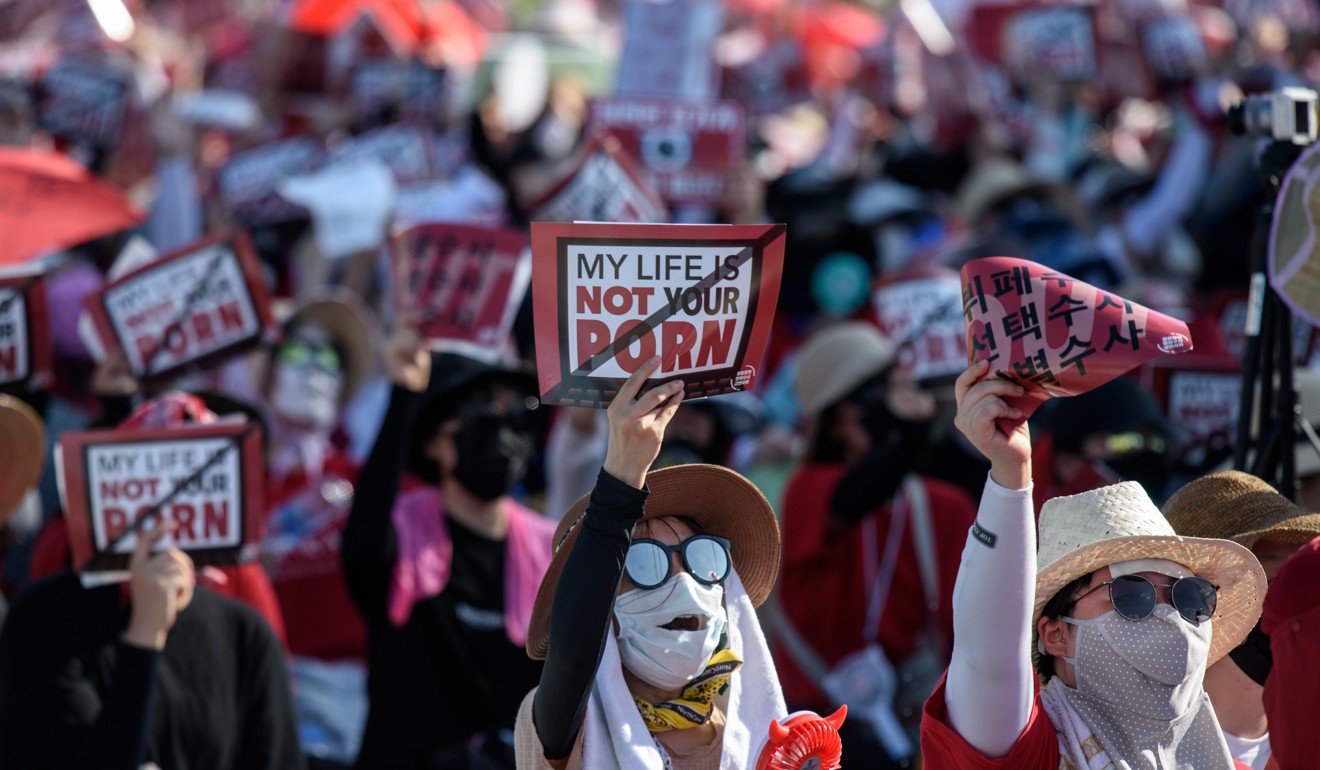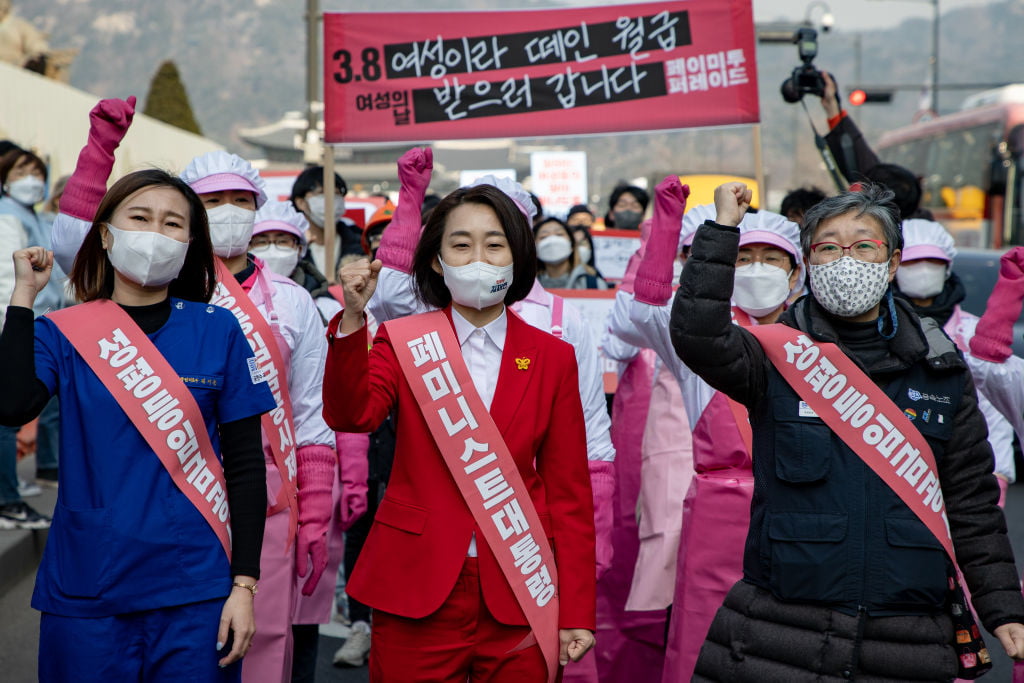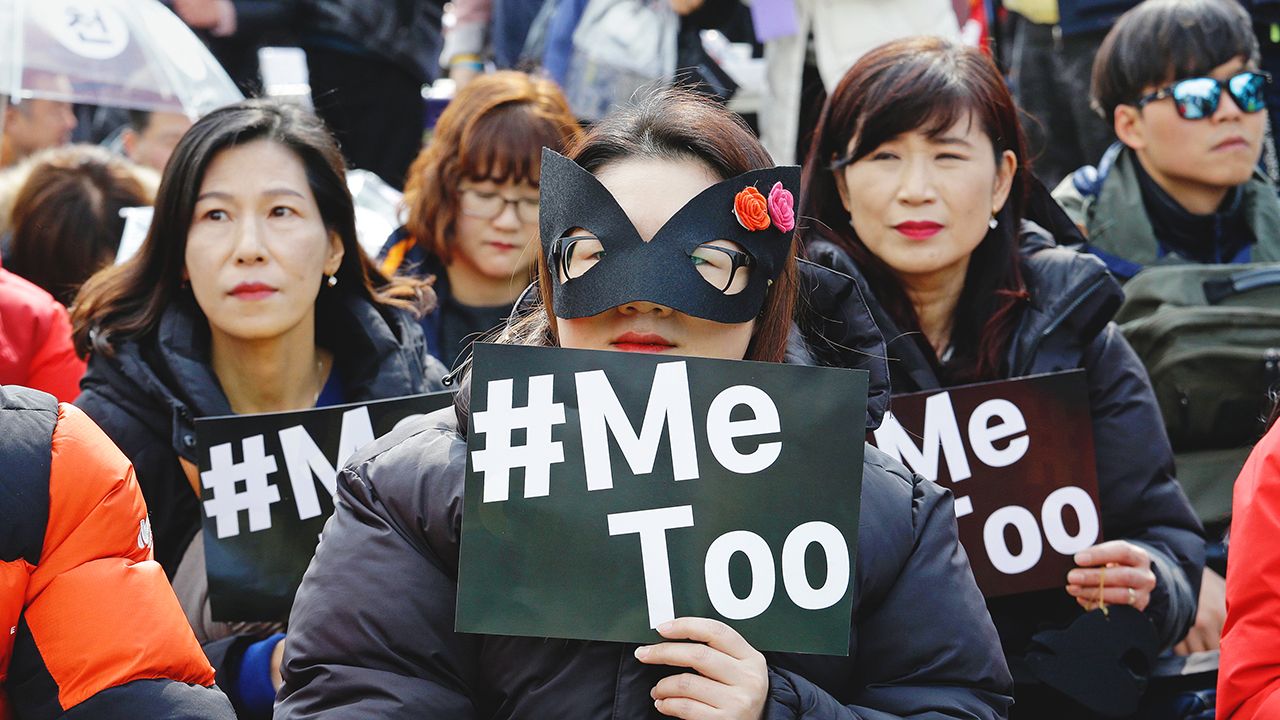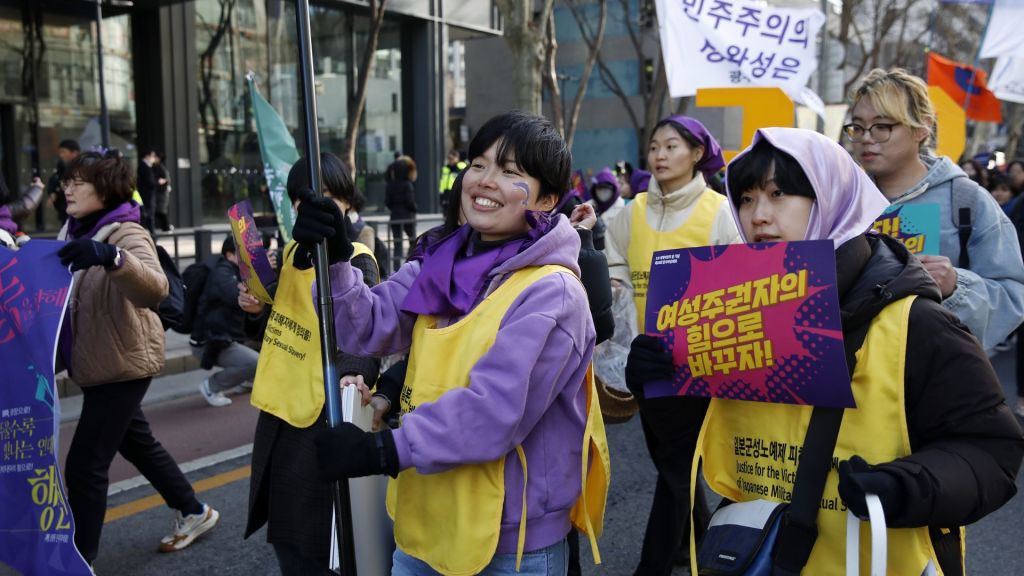The 4B (4비) Movement stands for the four Korean words: Bihon, Bichulsan, Biyeonae, and Bisekseu, which translate to heterosexual marriage, childbirth, romance, and sexual relationships. The movement essentially eliminates any romantic or sexual partnerships with men.
The 4B (4비) Movement stands for the four Korean words: Bihon, Bichulsan, Biyeonae, and Bisekseu, which translate to heterosexual marriage, childbirth, romance, and sexual relationships.
Originating in 2019, this movement represents a pivotal moment in women’s history because it creates a society where women are free of any gendered societal expectations placed on them. The 4B movement utilised the power of social media to digitalise this movement and garner attention worldwide.
The 4B Movement began with the Escape the Corset movement, a reaction against the confines of patriarchal society. In South Korea, women often face pressure to conform to beauty standards and traditional norms, all while earning significantly less than men, even in similar positions.

In 2019, as the population of Korea declined, there was increasing pressure purely placed on women to have children, which led to the rise of the 4B movement.
Origins of the 4B movement in South Korea
The movement traces its roots back to the concept of ‘3-po sede,’ coined in 2011, highlighting a generation giving up on marriage, romance, and childbirth due to societal pressures, lack of welfare, and inflation rates. The rise of digital feminism in 2015 further exposed gender disparities, leading to confrontations with misogyny and the objectification of women’s bodies. (Lee, Jieun, 2021)
Introduction of pronatalist policies in South Korea
One of the bigger problems Korean women face is pronatalist policies. Pronatalist policies are defined by policies that are looking to increase issues for nations facing a decline in population. This decline in population, while initially it might be a good thing, becomes a central issue with the lack of workforce and lack of youth.
However, most pro-natalist policies look to pressurise women and make them responsible for having children. These policies do not aim to resolve the origin of these problems. During the 1960s, South Korea was facing an overpopulation issue and released many ads discussing family responsibility that mainly targeted women. However, by the 2000s, the decline in the population became a bigger problem for the state. The reason why many people chose to remain childless was due to the overbearing responsibilities of having children that were largely placed on women.
The reason why many people chose to remain childless was due to the overbearing responsibilities of having children that were largely placed on women.
As feminism encouraged women to return to the workforce, a lot of household duties were still placed on women, which meant in many double-income households, women were still doing the majority of the household work. The wage disparity only exacerbated the problem, as stated by Heinrich-Böll-Stiftung (hbs): ‘Women earn 72.6% of what men do, and the women’s employment rate is 51.2%, which is 18.8% lower than that of men.’
In conclusion, while the nation kept encouraging women to have children and expecting women to take responsibility for national issues, it did not take into account why women were choosing not to have children.
Why is the 4B movement important?
Firstly, it brings forth a crucial conversation that needs attention. Research consistently demonstrates that traditional gender roles and the surge in gender violence are deeply ingrained within patriarchal societies. For instance, studies conducted by Shalini Mittal and Tushar Singh highlight a troubling escalation in gender-based violence during the pandemic, particularly fueled by factors such as alcoholism and economic insecurity (Mittal, Singh 2020).
Furthermore, their research sheds light on the inadequacy of existing services to tackle these issues and the alarming underreporting of such cases. The economic development of any society relies heavily on gender equality and justice, specifically focusing on women’s autonomy, yet every day there is coverage of ongoing violence (Baker, Leicht 2017). Thus, the 4B movement catalyses addressing these systemic issues and advocating for meaningful change to create safer and more equitable societies.
Impact of the 4B movement
The 4B movement gained traction internationally, serving as a critique against patriarchal structures. Yet, it also faced criticism and questions about its potential isolationism. Amidst global reports of gender violence, the 4B Movement offers a radical solution, suggesting that happiness might be found without men.
Pushback to the 4B movement
The 4B movement faces opposition similar to many radical feminist movements. There has been a resurgence and pushback from men’s rights activist groups, who have formed their own movement known as the 4G movement. While the meaning of ‘G’ remains unclear, the movement advocates for ‘no time, no sex, no babies, no provision’ for women. Although there isn’t extensive media coverage on the 4G movement, it can be argued that the pushback stems from the perception that women are rejecting men, leading some men to reciprocate by rejecting women.

While some may perceive the 4B Movement as isolationist due to its rejection of traditional relationship structures involving men, it’s essential to understand its context and intentions. The movement emerges from a desire to challenge patriarchal norms and address entrenched gender-based violence and inequality.
Rather than promoting isolationism, the 4B Movement aims to empower women to pursue autonomy and happiness on their terms, not terms dictated by society. The movement rejects patriarchy and not men.
Rather than promoting isolationism, the 4B Movement aims to empower women to pursue autonomy and happiness on their terms, not terms dictated by society.
The 4B movement challenges the notion that women have been hearing since a really young age, that their happiness is dependent on men, and living by societal rules. It tells women that they can prioritise their well-being over societal needs. In this sense, the movement seeks to create space for alternative forms of relationships and societal structures that prioritise equality and respect for all genders.
A lot of people today are refusing to have children because of the amount of economic pressure placed upon them. Governments should be coming with socialised healthcare and an education system so that people that want children actually feel unburdened by socio-economic pressures.
Citation:
Baker, Phyllis L., and Kevin T. Leicht. “Globalization, gender, and development: toward a theoretical understanding of public gender-based violence against women and girls.” Sociology of Development 3.4 (2017): 323-345.
Lee, Jieun, and Euisol Jeong. “The 4B movement: envisioning a feminist future with/in a non-reproductive future in Korea.” Journal of Gender Studies 30.5 (2021): 633-644
Kim, Sunhye, et al. “From Population Control to Reproductive Rights: Feminist Perspectives on Low Fertility Rates in South Korea: Heinrich Böll Stiftung Hong Kong: Asia Global Dialogue.” Heinrich Böll Stiftung Hong Kong | Asia Global Dialogue, 24 May 2023, hk.boell.org/en/2023/05/24/population-control-reproductive-rights-feminist-perspectives-low-fertility-rates-south.
Demeny, Paul. “Pronatalist policies in low-fertility countries: Patterns, performance, and prospects.” Population and Development Review 12 (1986): 335-358.
About the author(s)
Asmita Seth is a queer feminist writer committed to advocating for marginalized communities. Writing since a young age, she aims to inspire hope and drive change much like the writers who inspired her. Asmita's work explores themes of gender research, media and mental health.







Love this. Very well articulated, palatable and extremely informative article!